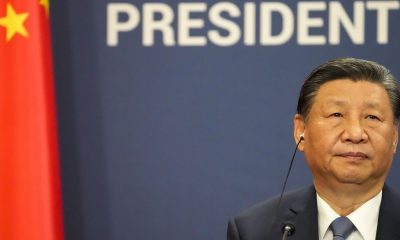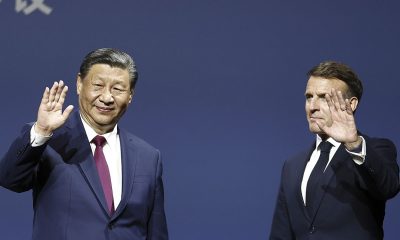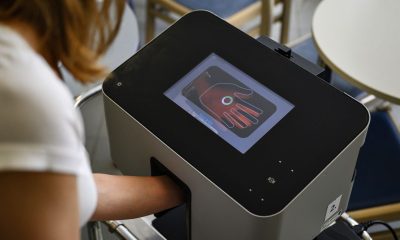General News
China to investigate EU brandy imports in new anti-dumping probe

China is launching an anti-dumping probe into imports of brandy from the European Union, a move which follows the bloc’s trade inquiry into Chinese electric vehicles.
The Chinese ministry of commerce said Friday that the investigation comes after complaints were made by the country’s alcoholic beverages association on behalf of a domestic brand.
An anti-dumping probes involves investigating whether a country is importing products at a price below fair market value.
A spokesperson on behalf of the European Commission confirmed that the investigation concerned “spirits (commonly known as brandy) products derived from distilled wines originating in the European Union.”
“We are now assessing the documentation we have received, and will intervene in the framework of the investigation, as appropriate, in close cooperation with the EU industry concerned,” the EU executive’s spokesperson for trade, Olof Gill, said.
French cognac is expected to be the main target of the investigation. The announcement saw the shares of French spirits companies such as Pernod Ricard SA and Remy Cointreau SA plummet. Both are parent companies of popular cognac brands including Hennessy, Remy Martin and Martell.
The move is seen as a response to the EU’s anti-subsidy inquiry into Chinese-made electric vehicles, announced during European Commission President Ursula von der Leyen’s annual State of the Union speech in October.
The EU is concerned that Beijing’s import restrictions and generous subsidies for China-based firms are putting European companies at an unfair disadvantage, inflating the bloc’s massive trade deficit with Beijing.
Cheap Chinese electric vehicles have recently flooded the EU market, undercutting domestic producers and presenting an existential threat to Europe’s car industry.
“Global markets are now flooded with cheaper Chinese electric cars. And their price is kept artificially low by huge state subsidies. This is distorting our market,” von der Leyen said in October. “And as we do not accept this distortion from the inside in our market, we do not accept this from the outside.”
France had been the leading voice amongst the EU’s 27 member state in advocating for the inquiry, as its leading domestic carmaker Renault called on Europe to act in response to China’s aggressive competition.
The Chinese response is seen as modest, given that liquor imports from the EU to China represents only a small fraction of the value of Beijing’s electric vehicle exports to the EU.
But it does mark a symbolic development in the ongoing EU-China trade spat.
European Union leaders reiterated their warning to China that it should play according to trade tules during a December EU-China summit in Beijing.
President von der Leyen said during the trip that the EU would “not tolerate that our (the EU’s) industrial base is undermined by unfair competition,” but also said both sides had agreed that trade between them should be balanced.
Chinese President Xi Jinping also expressed during the summit that he wanted Beijing and Brussels to cooperate as mutually beneficial partners.
The Asian giant is the EU’s biggest trading partner, with trade in goods amounting to a staggering €2.3 billion every day.
But EU imports from China now exceed its exports by almost €400 billion. This deficit has grown tenfold in the past 20 years and doubled over the past two years. According to von der Leyen, “such imbalances are just unsustainable.”
Source
Disclaimer: No copyright infringement intended. All rights and credits reserved to respective owner(s).
























